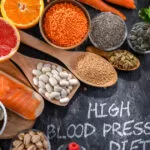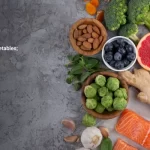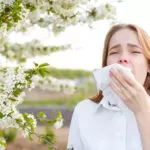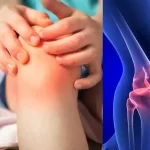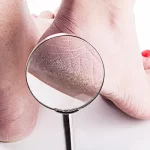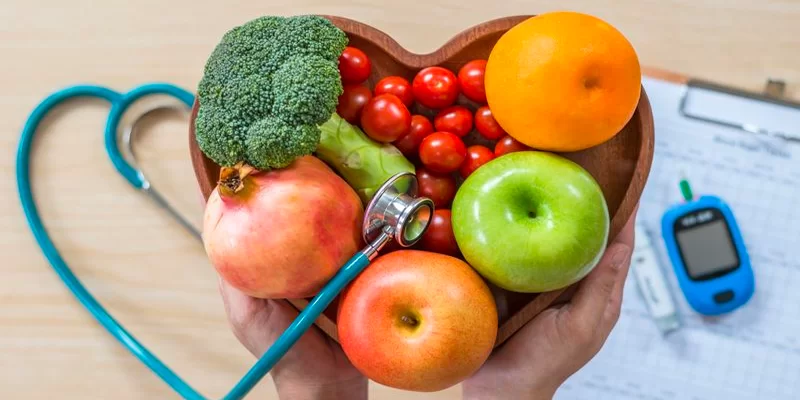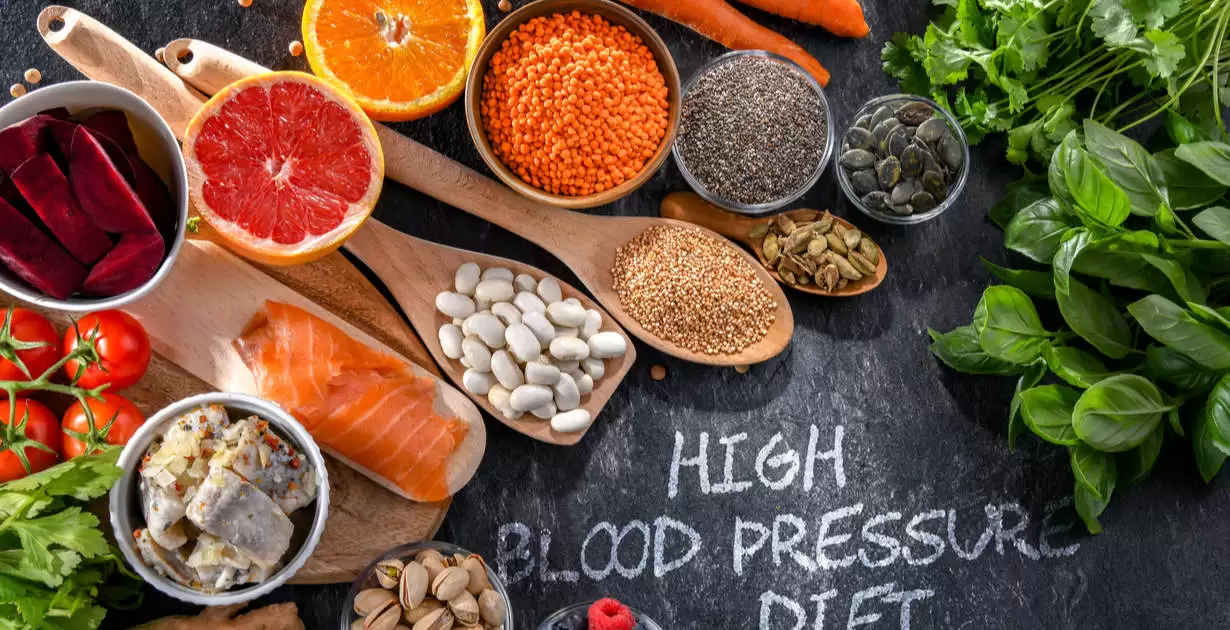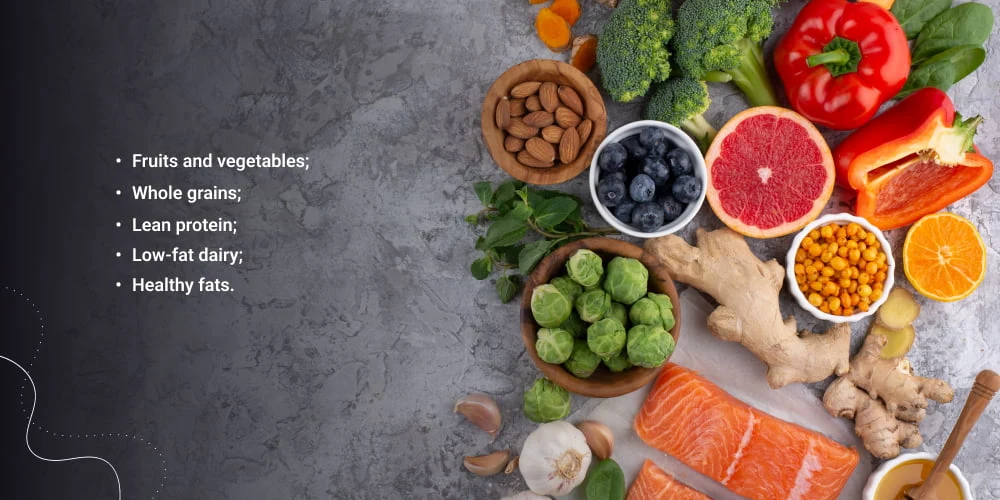What is Gastritis?
Regarding treatment for chronic gastritis, understand that gastritis refers to the inflammation, irritation, or erosion of the inner lining of the stomach, known as the mucosa. The mucosa acts as a protective barrier, shielding the stomach from its own acidic environment, digestive enzymes, and harmful microorganisms.
When the stomach lining becomes irritated or damaged, it triggers an inflammatory response as part of the body’s immune system to protect and heal the tissue. This inflammation leads to redness, swelling, and discomfort, a condition collectively known as gastritis.
Types of Gastritis: Acute vs. Chronic
Acute Gastritis: This form of gastritis occurs suddenly, often leading to sharp and intense symptoms. However, it typically resolves within a short period, ranging from a few days to several weeks. Acute gastritis can be caused by a variety of factors such as infections, irritants, or sudden trauma to the stomach lining.
Chronic Gastritis: Unlike the acute form, chronic gastritis develops more gradually over a prolonged period, often months or even years.
Chronic gastritis may persist long-term and can lead to more serious complications if left untreated. The gradual erosion of the stomach lining over time is often associated with underlying infections or autoimmune conditions.
Causes of Gastritis
Gastritis can result from multiple factors, and its causes vary between acute and chronic cases.
Causes of Acute Gastritis:
- Bacterial and viral infections: Common gastrointestinal infections can lead to sudden inflammation of the stomach lining.
- Alcohol or drug use: Excessive consumption of alcohol or recreational drugs can irritate and erode the stomach lining.
- Nonsteroidal anti-inflammatory drugs (NSAIDs): Frequent use of NSAIDs, such as ibuprofen (Advil, Motrin), naproxen (Aleve), and aspirin, can damage the stomach lining and trigger inflammation.
- Reduced blood supply: Trauma, surgeries, or critical illnesses such as shock, sepsis, severe burns, or ischemia (restricted blood flow) can impair the blood supply to the mucosa, leading to its weakening and inflammation.
- Chemotherapy or radiation therapy: These treatments can damage the stomach lining, leading to acute inflammation.
- Bile reflux: The backflow of bile from the small intestine into the stomach can irritate the mucosa and contribute to gastritis.
Causes of Chronic Gastritis:
- Helicobacter pylori (H. pylori) infection: The most common cause of chronic gastritis worldwide is infection with H. pylori, a type of bacteria that can erode the stomach lining over time. Roughly half of the global population is affected by this bacterium.
- Autoimmune gastritis: In this condition, the body’s immune system mistakenly targets and attacks the cells of the stomach lining, causing inflammation and damage. Autoimmune gastritis can occur on its own or in association with other autoimmune disorders.
Understanding the type and cause of gastritis is essential for effective treatment and management, as untreated gastritis can lead to more serious conditions such as ulcers, bleeding, or even an increased risk of stomach cancer.
Types of Gastritis
Gastritis can be categorized based on the damage it causes to the stomach lining and the specific triggers that lead to its development.
- Erosive Gastritis:
This type of gastritis is marked by the formation of ulcers or sores in the gastric mucosa. The inner lining of the stomach becomes damaged, often due to exposure to stomach acid, bile, alcohol, certain drugs (like NSAIDs), or harmful chemicals. Erosive gastritis can lead to bleeding or the formation of open wounds in the stomach lining, making it a more serious form of the condition.
- Non-Erosive Gastritis:
In non-erosive gastritis, the inflammation causes redness and swelling in the gastric mucosa without eroding the stomach lining. One subtype of non-erosive gastritis is atrophic gastritis, where the stomach lining becomes thinner over time, which can decrease the stomach’s ability to produce necessary digestive acids and enzymes.
- Other Specific Types of Gastritis:
- Infectious Gastritis: Caused by harmful bacteria (most commonly Helicobacter pylori) or viruses.
- Alcohol-Induced Gastritis: Triggered by excessive alcohol consumption, which irritates the stomach lining.
- Stress-Induced Gastritis: Develops in response to extreme physical stress, such as from surgery, injury, or critical illness.
- Drug-Induced Gastritis: Caused by frequent use of medications like NSAIDs or other irritants.
- Autoimmune Gastritis: Occurs when the immune system mistakenly attacks the stomach lining, leading to chronic inflammation.
- Eosinophilic Gastritis: A rare form of gastritis associated with an increase in eosinophils (a type of white blood cell), often due to allergic reactions or other immune system problems.
Symptoms of Gastritis
In mild cases, gastritis may not produce noticeable symptoms. However, in more severe or long-lasting cases, common symptoms include:
- Nausea
- Vomiting
- Indigestion (discomfort or pain after eating)
- Hiccups or belching
- Stomach pain (usually in the upper middle abdomen)
- Bloating
- Loss of appetite
In cases where the stomach lining is severely damaged, gastritis can lead to ulcers. These ulcers can cause internal bleeding, leading to symptoms such as:
- Melena: Black, tarry stools, indicating bleeding in the digestive tract.
- Coffee Grounds Emesis: Vomiting blood that resembles coffee grounds, a sign of gastrointestinal bleeding.
What Does Gastritis Pain Feel Like?
Gastritis pain is typically experienced in the epigastric area, which is the upper middle part of the abdomen, just below the ribs. The pain may feel gnawing, aching, or burning and can vary in intensity.
Unlike stomach ulcers, which may cause localized pain, gastritis tends to affect a broader area. The discomfort often improves temporarily after eating, although indigestion and bloating may follow meals.
YOU MAY LIKE:Best Fruits for Arthritis
Diagnosis and Management
Medical Diagnosis: If gastritis is suspected based on symptoms and medical history, your healthcare provider may perform a physical examination and recommend additional tests to confirm the diagnosis. These tests may include:
- Endoscopy: A procedure that uses a thin, flexible tube with a camera to look at the stomach lining for signs of inflammation or ulcers.
- Biopsy: A small sample of stomach tissue may be taken during an endoscopy to test for infections, including H. pylori.
- Blood Tests: To check for infections, anemia, or other abnormalities.
- Stool Tests: To detect the presence of blood or bacterial infections.
- Urea Breath Test: Used to detect H. pylori infection.
Management: The treatment of gastritis typically focuses on addressing the underlying cause and relieving symptoms. This may include:
- Medications: Such as antacids, H2 blockers, proton pump inhibitors (PPIs) to reduce stomach acid, or antibiotics if an infection like H. pylori is present.
- Dietary Changes: Avoiding irritants like spicy foods, alcohol, caffeine, and acidic foods.
- Lifestyle Adjustments: Reducing stress, quitting smoking, and limiting the use of NSAIDs can help prevent or manage gastritis symptoms.
Diagnosis of Gastritis
To diagnose gastritis, healthcare providers may use a combination of tests to assess the condition and determine its underlying cause. Some of the common diagnostic methods include:
- Barium Swallow (Intestinal Series): X-rays are taken after the patient swallows a liquid containing barium, which helps to highlight the stomach and esophagus on the images, allowing doctors to observe any abnormalities.
- Upper Endoscopy with Tissue Biopsy: A thin tube with a camera is inserted through the mouth into the stomach to visually inspect the stomach lining. A small tissue sample (biopsy) may be taken for further testing.
- H. Pylori Breath Test: This test detects the presence of Helicobacter pylori bacteria, a common cause of chronic gastritis. The patient drinks a solution, and if the bacteria are present, a chemical reaction occurs that can be detected in their breath.
- Blood Tests: These can check for anemia, infections, and immune responses, as well as vitamin deficiencies related to gastritis.
- Stool Tests: Used to detect blood in the stool or the presence of H. pylori.
Importance of Professional Guidance
The symptoms of gastritis can overlap with many other gastrointestinal conditions, which is why it’s important to seek professional medical advice for accurate diagnosis and treatment. Ignoring gastritis or leaving it untreated can lead to serious complications, including:
- Peptic Ulcer Disease: Erosion of the stomach lining, leading to painful ulcers.
- Iron Deficiency Anemia: Often caused by blood loss from an ulcer.
- Gastric Outlet Obstruction: Scar tissue can develop in the stomach, blocking the passage of food into the small intestine.
- Gastric Perforation: A hole in the stomach wall, which can cause bacteria to leak into the abdominal cavity, leading to peritonitis (inflammation of the abdominal lining), septicemia, or sepsis.
- Pernicious Anemia: Atrophy of the stomach lining can reduce the absorption of vitamin B12, iron, and folic acid, resulting in anemia.
- Gastric Intestinal Metaplasia: Chronic gastritis can cause changes in the stomach cells, increasing the risk of gastric cancer.
Natural and Home Remedies for Gastritis
The Role of Diet and Nutrition
Diet plays a key role in managing the symptoms of gastritis and preventing flare-ups. If you don’t have any symptoms, you can maintain a normal diet, but dietary adjustments can be very beneficial if symptoms are present. Avoiding certain foods and incorporating others can help manage the inflammation and irritation of the stomach lining.
Foods and Drinks to Avoid for Gastritis Relief
To reduce irritation and inflammation, it’s advisable to avoid the following:
- Alcohol: Can erode the stomach lining and exacerbate symptoms.
- Coffee: Both caffeinated and decaffeinated coffee can increase stomach acid production.
- Sodas: Carbonated beverages can irritate the stomach lining and cause bloating.
- Acidic Foods: Citrus fruits, chocolate, and tomatoes can aggravate gastritis.
- Spicy Foods: Can inflame the stomach lining and increase discomfort.
- High-Fat or Fried Foods: Items like French fries, fried chicken, and doughnuts are harder to digest and can irritate the stomach.
- High-Fat Meats: Processed meats like hamburgers, bacon, and sausages should be avoided as they can worsen symptoms.
- Ultra-Processed Foods: These foods, high in salt, sugar, and saturated fats, such as cookies, pastries, and fast food, can exacerbate gastritis symptoms.
What Foods Improve Gastritis?
Eating minimally processed, whole foods can help soothe the stomach and promote healing from acute and chronic gastritis. Some beneficial options include:
- Fresh Fruits and Vegetables: Non-acidic, fiber-rich foods that help promote digestion.
- Whole Grains: Such as oats, brown rice, and quinoa, which provide fiber and nutrients without irritating the stomach.
- Nuts and Seeds: These are nutrient-dense and can help reduce inflammation.
- Nut Butters: Healthy fats from almond or peanut butter can be easier on the stomach.
- Legumes: Beans, lentils, and peas provide protein and fiber that are gentle on the stomach.
- Olive Oil: A healthy fat that has anti-inflammatory properties.
- Eggs: A good source of protein that is generally easy to digest.
- Lean Meats: Such as chicken, turkey, or fish, which provide essential nutrients without contributing to acid production.
In addition, it’s important to eat balanced meals that include proteins, carbohydrates, and healthy fats to support the healing of the stomach lining and overall digestive health.
SEE ALSO:Diet For High Cholesterol
Best Drinks for Gastritis
When managing gastritis, it is essential to choose beverages that are gentle on the stomach. Some of the best drinks for people with gastritis include:
- Water: Drinking plenty of water helps dilute stomach acid and supports digestion without irritating the stomach lining.
- Herbal Teas: Teas like chamomile, ginger, or licorice root are soothing and can help reduce inflammation and discomfort. These teas are caffeine-free, which is beneficial as caffeine can irritate gastritis.
- Clear Broths: Low-sodium broths provide hydration and essential nutrients without causing stomach distress.
- Aloe Vera Juice: Some people find aloe vera juice soothing due to its anti-inflammatory properties, though you should consult a healthcare provider before trying it.
Dietary Supplements for Gastritis
If gastritis has affected the absorption of nutrients, you might need specific supplements to address deficiencies. However, it is crucial to speak with a healthcare professional before taking any supplements. Nutrients that may require supplementation in individuals with gastritis include:
- Vitamin B12: Gastritis can impair the absorption of this essential vitamin.
- Folic Acid and Iron: These nutrients are often affected by damage to the stomach lining and are critical for preventing anemia.
- Probiotics: While probiotics may help restore balance in the gut, especially if an infection like H. pylori is present, you should consult your doctor before adding them to your regimen.
Lifestyle Changes for Long-Term Gastritis Relief
In addition to dietary modifications, several lifestyle changes can help manage gastritis symptoms over the long term:
- Eat Small, Frequent Meals: Rather than eating two or three large meals, aim to eat smaller meals and snacks throughout the day. This can reduce stress on the stomach lining.
- Wait Between Meals: Allow at least 3 hours between meals and snacks to promote digestion and reduce acid reflux.
- Avoid Eating Before Bedtime: Eating within 3 hours of bedtime can increase stomach acid and lead to discomfort at night.
- Quit Smoking: Smoking irritates the stomach lining and can worsen gastritis symptoms.
- Reduce Stress: Stress can exacerbate gastritis. Practices like meditation, yoga, deep breathing exercises, and massage therapy can help manage stress.
- Limit Pain Medications: Avoid excessive use of NSAIDs like ibuprofen, naproxen, and aspirin, which can irritate the stomach. If these medications are necessary, take them with food.
Herbal Treatments for Gastritis
Certain herbal remedies may offer relief for gastritis symptoms, though their efficacy varies, and more research is needed. Consult your healthcare provider before using these supplements:
- Garlic Extract: Has antimicrobial properties that may help combat H. pylori.
- Green and Black Tea: Both types of tea may help reduce the risk of H. pylori infection.
- Manuka Honey: This type of honey has been shown to have antibacterial properties and may promote healing of the stomach lining.
Medical Treatments for Gastritis
The treatment of gastritis depends on its underlying cause, but common medical treatments aim to reduce stomach acid and heal the stomach lining:
Medications for Gastritis
- Antacids: Over-the-counter medications like Tums, Milk of Magnesia, and Gaviscon neutralize stomach acid and provide quick symptom relief. Bismuth subsalicylate (Pepto-Bismol) can protect the stomach lining and is often used in combination with antibiotics and proton pump inhibitors (PPIs) to treat H. pylori infections.
- H2 Blockers: Medications such as Pepcid and Tagamet reduce stomach acid production and help alleviate symptoms.
- Proton Pump Inhibitors (PPIs): Drugs like Prilosec, Nexium, and Prevacid reduce acid production and promote healing of the stomach lining.
- Antibiotics: If H. pylori infection is present, antibiotics are necessary to eradicate the bacteria.
- Probiotics: These may be beneficial in restoring gut flora, particularly after antibiotic treatment for bacterial infections.
Other Treatments for Gastritis
Depending on the cause of gastritis, other treatments may include:
- Alternatives to NSAIDs: For pain management, doctors may recommend other medications that do not irritate the stomach.
- Alcohol or Cocaine Addiction Treatment: Addressing substance use can help reduce damage to the stomach lining.
- Autoimmune Disorder Therapy: For autoimmune-related gastritis, treatments might target the immune system to reduce inflammation.
- Surgery: In severe cases, such as those involving gastrointestinal bleeding, bile reflux, or ischemia, major surgery may be necessary to repair the stomach or address other complications.
By following a comprehensive treatment plan, gastritis can be managed effectively, allowing for symptom relief and prevention of complications.
Conclusion
Chronic gastritis is a long-term inflammation of the stomach lining that can result from various causes, including Helicobacter pylori infection, autoimmune conditions, prolonged use of nonsteroidal anti-inflammatory drugs (NSAIDs), and lifestyle factors.
Treatment for chronic gastritis focuses on addressing the underlying cause, managing symptoms, and promoting healing of the stomach lining to prevent further complications.
Common treatment options include medications to reduce stomach acid, such as proton pump inhibitors (PPIs) and H2 blockers, which help alleviate irritation and promote healing. In cases of H. pylori infection, a combination of antibiotics is used to eradicate the bacteria.
Antacids may be prescribed for immediate symptom relief, and dietary modifications are often recommended to reduce stomach irritation. For autoimmune gastritis, addressing nutrient deficiencies (such as vitamin B12) is crucial, alongside managing immune responses.
Lifestyle changes like reducing alcohol intake, quitting smoking, managing stress, and avoiding irritants like spicy foods and NSAIDs can also contribute to long-term relief.
In severe cases, complications such as ulcers or gastrointestinal bleeding may require more intensive treatments, including surgery. Chronic gastritis management typically requires ongoing medical care to ensure effective treatment and prevent complications.
Benefits of Cloves to The Vagina

A graduate of Computer Science and Information Management Technology. Diploma – Caregiving, Certificates – Dementia and Diabetes Awareness and Management. A researcher, blogger, songwriter, singer and acoustic guitarist. Born in an environment where natural talents such as healing are imparted at our natural birth. This natural talents of healing is the result of our genetic inheritance and the training from family environment.


